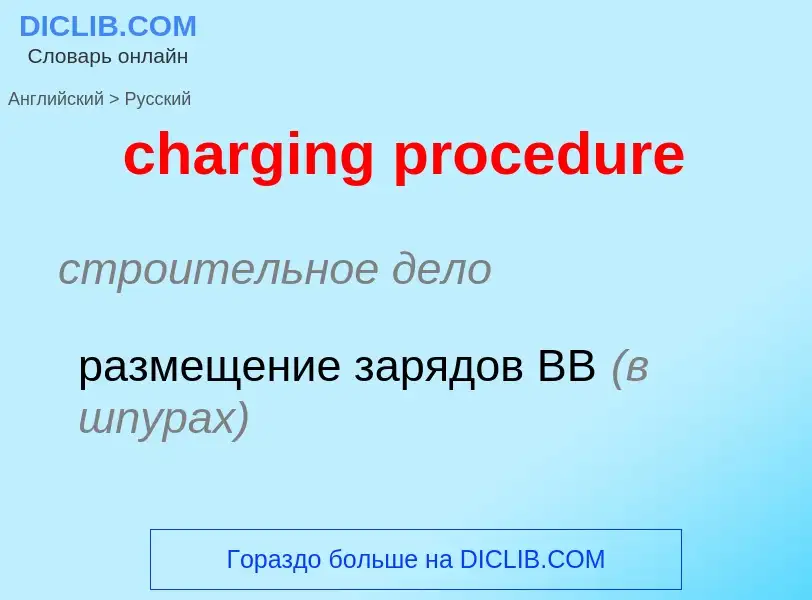Vertaling en analyse van woorden door kunstmatige intelligentie ChatGPT
Op deze pagina kunt u een gedetailleerde analyse krijgen van een woord of zin, geproduceerd met behulp van de beste kunstmatige intelligentietechnologie tot nu toe:
- hoe het woord wordt gebruikt
- gebruiksfrequentie
- het wordt vaker gebruikt in mondelinge of schriftelijke toespraken
- opties voor woordvertaling
- Gebruiksvoorbeelden (meerdere zinnen met vertaling)
- etymologie
charging procedure - vertaling naar russisch
строительное дело
размещение зарядов ВВ (в шпурах)
общая лексика
подзаряд
подзарядка
Wikipedia
Trickle charging means charging a fully charged battery at a rate equal to its self-discharge rate, thus enabling the battery to remain at its fully charged level; this state occurs almost exclusively when the battery is not loaded, as trickle charging will not keep a battery charged if current is being drawn by a load. A battery under continuous float voltage charging is said to be float-charging.
For lead-acid batteries under no load float charging (such as in SLI batteries), trickle charging happens naturally at the end-of-charge, when the lead-acid battery internal resistance to the charging current increases enough to reduce additional charging current to a trickle, hence the name. In such cases, the trickle charging equals the energy expended by the lead-acid battery splitting the water in the electrolyte into hydrogen and oxygen gases. Other battery chemistries, such as lithium-ion battery technology, cannot be safely trickle charged. In that case, supervisory circuits (sometimes called battery management system) adjust electrical conditions during charging to match the requirements of the battery chemistry. For Li-ion batteries generally, and for some variants especially, failure to accommodate the limitations of the chemistry and electro-chemistry of a cell, with regard to trickle charging after reaching a fully charged state, can lead to overheating and, possibly to fire or explosion.

